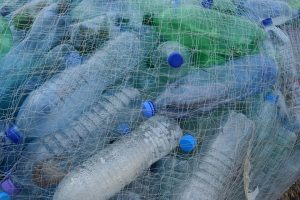Biodegradable and traceable plastics could become a purely Italian trademark. What? Thanks to the Earthbi project and its biodegradable polymer totally inserted into the blockchain system.
Pending the entry into force of the European laws that from 2021 will put to ban the disposable plastic, here is that this startup is going to put on the market a new material, deriving from PLA (Polylactic acid) but greatly improved thanks to an accurate study in the all-Italian laboratory. Formed by biomasses deriving from production scraps and therefore easily recyclable, to give value to the polymer, which manages to conserve the properties of traditional plastics, is its ability to degrade over time. A property that current bottles or plastic bags do not have, creating those plastic seas often seen on television. Directly from the Pomezia plant, in the province of Rome, the new plastic could easily replace the one currently on the market, solving the problem of pollution of the seas without too many jolts to productive or economic processes.

An ethical process at the base of everything. The idea, founded in 2017, developed in the company during the 2018 until the creation of the online token Sales campaign starting in march of 2019. But it is in the application of the principles of block chain that the other fundamental factor of this Italian startup is established. With the traceability of the products and the insertion of all the data in the blockchain system, it is possible to know provenance, information about the buyers and destination, creating a virtuous, non-manipulable and unique transparency system.
In 2016, according to the data developed by EarthBi, there was a production of plastic equal to 400 million tonnes, of which only 2 bioplastics. A production that, however, with the entry at full speed in the current market and with the emulation of other companies around the world, could significantly increase this percentage. From EarthBi They know that two other plants are being developed, one in Slovenia and one in Malta. To their conclusion, it is estimated, the annual production of this material can reach about 60 thousand tonnes per year through a process that does not imply modifications in the production chain and which does not require any particular structures. Not bad for a startup!